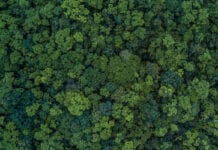
Environmental scientists, ecologists, and policy experts argue in a letter published on 16 June in Science that the proposed Post-2020 Global Biodiversity Framework – a new international agreement to protect biodiversity – fails to account for the totality of chemical pollutants that threaten the health of ecosystems worldwide. Their recommendations arrive ahead of Post-2020 Global Biodiversity Framework negotiations taking place from June 21 to 26, 2022 in Nairobi, Kenya.
In the letter titled “Broaden chemicals scope in biodiversity targets” and initiated by members of the International Panel on Chemical Pollution, the authors urge decision makers to broaden the narrow scope of chemicals presently covered in the draft agreement. They also call for greater collaboration among interdisciplinary research teams to address the complex effects of chemical pollution on ecosystems.
“The draft agreement falls short by limiting itself to nutrients, pesticides and plastics, while many chemicals of high concern and importance are left out of the equation – including substances that are persistent and toxic, such as mercury and PFAS (per- and polyfluoroalkyl substances), as well as pharmaceuticals,” say lead authors Gabriel Sigmund, group leader in the Centre for Microbiology and Environmental Systems Science at the University of Vienna and Ksenia Groh, head of the bioanalytics group at EAWAG, Swiss Federal Institute of Aquatic Science and Technology.
“The irrefutable evidence of chemical pollutants found in every ecosystem of the world, including remote Arctic, Antarctic and Himalayan ecosystems, should compel negotiators of the new biodiversity framework to include these as threats to global biodiversity,” says co-author Miriam Diamond, professor in the Department of Earth Sciences and School of the Environment at the University of Toronto.







